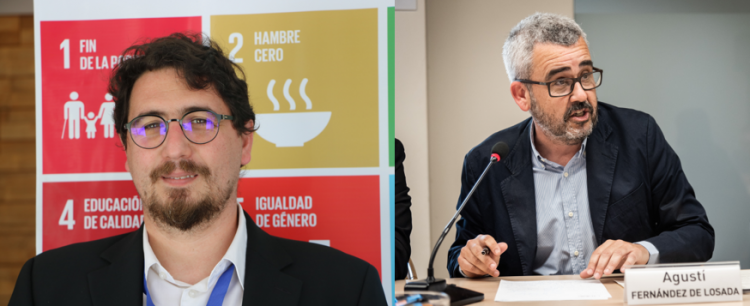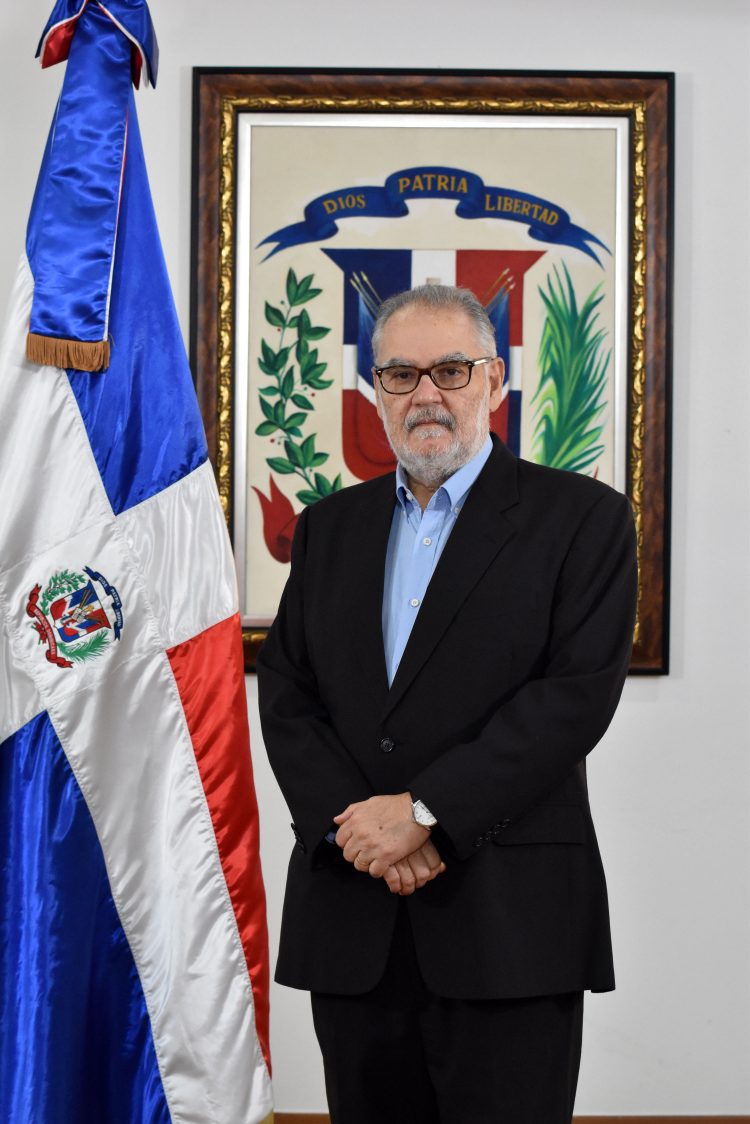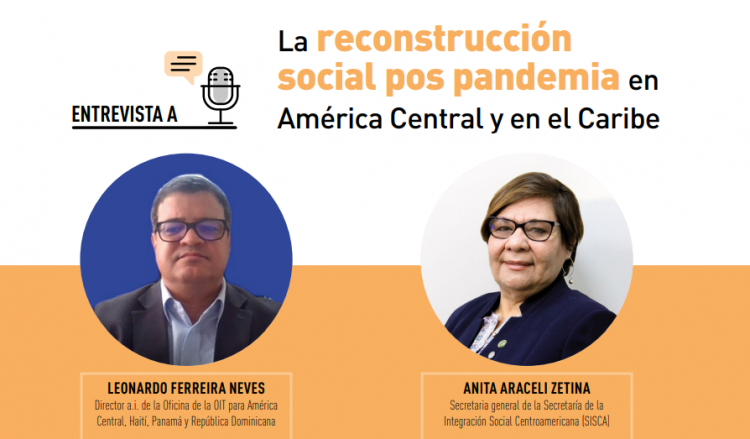By Agustí Fernández de Losada, director of the CIDOB Barcelona Centre for International Affairs Global Cities Programme, and EUROsociAL+ expert, and Emanuel Porcelli, coordinator of International Cooperation of the National Council for the Coordination of Social Policies, Argentina

Territorial partnerships for a fair, sustainable and resilient recovery
Although it may seem contradictory due to its status as a global agenda with a strong universal aspiration, the 2030 Agenda for Sustainable Development approved in 2015 has a significant territorial and local dimension. Proof of this can be found in the definition of an objective focused on the sustainable development of cities (SDG 11); and in the fact that a very important part of the goals defined in the framework of the 17 SDGs requires the participation of local and regional governments for their implementation. In fact, according to an estimate by UN Habitat, two-thirds of the goals articulated by the SDGs are deployed within the framework of the competencies and responsibilities that, in most of the countries of the world, are partly or totally assumed by local and regional governments.
This reality, however, poses an important challenge, since local and regional governments often operate in circumstances of limited resources and capacities. Latin America is no exception to this situation. According to recent estimates, their participation in public spending is no more than 15% of GDP, with that of local governments is only 3.6%[1]. Therefore, making progress in localisation processes that allow effective implementation of the SDGs at the territorial level requires processes to strengthen institutional and operational capacities of local and regional governments.
And although this was already a major challenge, the COVID-19 health emergency has made this a matter of urgency. In fact, the pandemic has revealed a convergence of numerous crises – the climate, the economy, social and global health – that has placed local and regional governments in a position of significant centrality. For a long period marked by social isolation and restrictions, they have been in the forefront trying to guarantee rights and ensure the provision of highly sensitive basic services for citizens. Even in a context of severely limited resources, cities, departments, provinces and states throughout the region have shown a significant capacity when it comes to offering responses and solutions adapted to local situations in areas such as mobility and the management of public space, support for particularly sensitive sectors of the local economy, care for the vulnerable and addressing inequalities and the many gaps caused by digitisation and technological disruption. This they have done without losing sight of the global commitment to move towards climate neutrality schemes.
But this capacity to offer answers and solutions must transcend the crisis generated by the pandemic and make local and regional governments key actors in the recovery. The commitment to make progress in a double transition, ecological and digital, that is fair, inclusive and sustainable, requires territorial policies aimed at transforming productive structures, rethinking behaviour patterns of societies, enhancing resilience and ensuring that no one, no territory and no ecosystem is left behind.
In this context, the 2030 Agenda for Sustainable Development offers an invaluable frame of reference to encourage more sustainable, inclusive and resilient recovery processes. Beyond its undeniable symbolic potential, the Agenda offers us a story and a model with the potential to mobilise the commitments, resources and knowledge that will be necessary to support a recovery that will speed up the transformations needed by Latin America and the planet.
Among other foundational elements, the model is based on the notion of partnership (SDG 17) and the necessary coordination between all the stakeholders that play a relevant role in sustainable development processes. In the 2030 Agenda for Sustainable Development, there is a clear commitment to reinforcing the essential collaboration between, on the one hand, different levels of government – international, national, regional and local – and on the other, between them and the private sector, civil society and the knowledge sector.
Moving towards efficient forms of multilevel governance will be essential to coordinating the partnership between national and territorial, regional and local governments, forms that consider distribution of competency schemes defined in the legal systems, as well as the need to promote non-hierarchical collaboration based on institutional loyalty and principles such as subsidiarity; that aim to seek complementarity, mobilise resources and knowledge and accept shared responsibilities.
In this sense, it is essential to ensure the support of national governments so that the localisation processes of the 2030 Agenda for Sustainable Development are effective and local and regional governments can implement the SDGs in their respective territories. Ultimately, it is about national governments supporting and facilitating sustainable territorial development, activating all the necessary resources for the deployment of the necessary transformations.
Some Latin American countries are taking advantage of the commitment to localise the 2030 Agenda for Sustainable Development to promote and strengthen their partnership with territorial, local and regional governments. They are doing this while accepting the need to strengthen their capacities to be able to lead the recovery processes of their territories, using the SDGs as a frame of reference.
The challenges of the territorialisation of the 2030 Agenda for Sustainable Development in a federal context: the Argentine case.
Argentina, one of the countries with the largest territorial dimension and federal organisation in the region, offers us a relevant experience from which to draw lessons for other countries of the region and also for Europe.
The COVID-19 pandemic has made the structural inequality that existed before the crisis more evident. In this context, the principles of the SDGs and the 2030 Agenda for Sustainable Development are vindicated and strengthened, both as diagnostic tools and as an opportunity to design and plan public policies.
The 2030 Agenda for Sustainable Development reinforced the role of the state as the main stakeholder for development as in 2015, the governments of the countries established and committed to a precise horizon for sustainable development, But this is not a task for just one government. It involves the work of the national government in its various ministries, agencies and bodies in conjunction with provincial states and local governments. It also requires permanent coordination with the different social actors who, from their respective responsibilities, enhance and strengthen access to rights where they are denied and take possible actions generating multiple collective and solidarity projects that improve life in neighbourhoods, towns and communities and geographic regions throughout our country.
In this regard, the 2030 Agenda for Sustainable Development gives local governments and communities an essential role in achieving the SDGs. From a local standpoint, the different actors are better positioned to understand collective needs, challenges and capacities, as well as to articulate their responses and actions, focusing them on common goals. At the same time, and as pointed out above, in a world shaken by the COVID-19 pandemic, local governments are now on the front line, and are the first area affected by the social, economic and environmental impact of the crises.
In Argentina, the territorialisation of the 2030 Agenda for Sustainable Development is based on the recognition of the heterogeneity between regions and localities that occur in the country. For this reason, the best way to ensure that the policies proposed are adequate is to strengthen the capacity of local governments to design and implement policies, supporting and encouraging scenarios from the national level. We also know that the heterogeneity of the country’s regions and localities makes an explicit directed public policy proposal based on scenarios defined in “expert laboratories” infeasible. The country has a history of failed implementation of models that were presented as “innovative” but were no more than an ensemble of homogeneous recipes that had to be applied strictly in all situations and contexts, the result of which widened the gaps in the country.
The National Council for the Coordination of Social Policies (hereinafter CNCPS) is responsible for executing not only the international aspects of Argentina’s state undertakings to the 2030 Agenda for Sustainable Development, but also for coordinating domestic actions and territorialisation by working with provinces and local governments.
The CNCPS undertook to provide technical assistance to define goals and indicators for monitoring the SDGs and identifying social policies and programmes aimed at fulfilling the SDGs; also to assist local governments when identifying synergies and partners (national state agencies, international cooperators, social and business actors) to implement the SDGs in their jurisdictions.
With this in mind, different work strategies were implemented to support territorialisation within the framework of the decade of action. Firstly, based on lessons learned while working with local governments nationwide, the CNCPS drafted a third version of the Manual for Local Adaptation of the Sustainable Development Goals from a federal perspective, with updated content and new developments related to suggestions and methodological contributions. On the other hand, framework agreements for cooperation, training and technical assistance have been established with local governments (in addition to agreements already established with 22 of the 24 provinces of our country), and the governments with which they has been agreed will soon launch the Network of Local Governments for Sustainable Development.
In this framework, we have designed the CNCPS intervention process in five successive levels for work with local governments:
- Institutionalisation: signing the agreement. Designation of the lead government area. Establishment of the local focal point (LFP).
- Raising awareness of the 2030 Agenda for Sustainable Development: meetings and activities supported by the CNCPS to implement the 2030 Agenda, its objectives and goals. Preparation of internal organisational strategies to work on the 2030 Agenda for Sustainable Development in a comprehensive manner with the different organisations that make up the local executive.
- Prioritisation, adaptation and definition of SDG targets and indicators: correlation between the local Strategic Plan and the SDGs. Goal prioritisation. Definition and validation of results and indicators Preparation of technical sheets. Identification of associated means of implementation.
- Follow-up, monitoring and accountability: presentation of monitoring reports on the fulfilment of the established goals. In this regard, CNCPS is encouraging and assisting in the preparation of local progress reports on the 2030 Agenda for Sustainable Development.
- Socialisation of the Agenda: actions carried out by governments to publicise the work plan to the general public, with particular emphasis on organised social and local business actors and other entities to encourage the construction of synergies for the development of public politics.
The institutionalisation and installation of the 2030 Agenda for Sustainable Development is of fundamental importance, which is why the approval of local legislation (both provincial and local) has been promoted whereby the SDGs are declared of public interest and their policies and budgets are aligned with the 2030 Agenda for Sustainable Development. Organising local executive powers with the legislatures leads to local political consensus, facilitating the inclusion of the issue on the government agenda beyond the electoral junctures.
Finally, the entire community’s adoption of the challenges and agreements necessary for sustainable development is pivotal to the territorialisation of the 2030 Agenda for Sustainable Development and the SDGs. In this regard, the CNCPS has been organising local forums for social participation as spaces for dialogue between local government and societal actors.
CNCPS is convinced that territorialisation of the SDGs and the 2030 Agenda for Sustainable Development is a starting point for debate, collaboration, exchange, design, implementation and consolidation of the public policies adopted by governments and local communities, and the best way to create development processes to be adapted and carried out according to the different demographic, productive, cultural and environmental realities.
Lessons learnt
The Argentine experience highlights the relevance of the 2030 Agenda for Sustainable Development localisation processes in a post-pandemic recovery context. Local and regional governments, together with the public and private operators operating in the territory, are in an excellent position to define contextualised responses and solutions tailored to local realities. The public policies they promote are essential to addressing the main challenges facing the region and the planet: the twin transition (ecological and digital), the social emergency and the need to redefine the productive systems. The 2030 Agenda for Sustainable Development has become an essential frame of reference to promote a fair, sustainable and resilient recovery at the territorial level.
However, local and regional governments in Argentina and throughout the region operate with limited resources and with a level of skills and competencies that are not always the best suited to address their challenges. Appealing to one of the foundations of the 2030 Agenda for Sustainable Development – an approach to sustainable development based on the notion of partnership – the Argentine experience shows us the importance of building partnerships between the national and local and regional governments within the framework of a effective multi-level governance system.
The National Council for the Coordination of Social Policies’ commitment to institutionalise partnerships aimed at promoting the localisation of the SDGs gives local and regional governments a stronger leadership role to further the essential transformation processes in the current recovery context. Collaboration between national and territorial governments offers the latter the possibility of having key resources to implement more efficient, better informed and results-oriented public policies based on territorial priorities; public policies that involve and commit citizens and other local stakeholders in a logic of co-responsibility within a scenario of shared challenges at the local, national and international levels.
On the other hand, the creation of the Network of Local Governments for Sustainable Development generates a space for facilitating the necessary sharing of knowledge, experiences and innovation so that the different levels of government have the tools the require to promote more efficient public policies. It is an ambitious undertaking, which places collaboration at the heart of efforts to strengthen the capacities of the different public and private actors who are responsible for driving the transformations that society is demanding.
[1] Economic Commission for Latin America and the Caribbean (ECLAC), Fiscal Panorama of Latin America
and the Caribbean (LC/PUB.2021/5-P), Santiago, 2021.
(LC/PUB.2021/5-P), Santiago, 2021.




